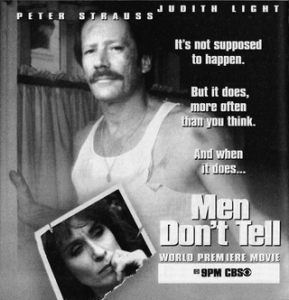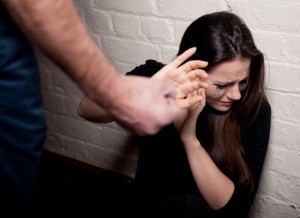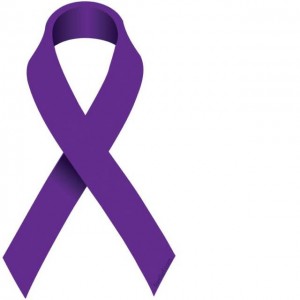Domestic Violence Awareness Month in Memphis, Tennessee
October is National Domestic Violence Awareness Month. In Memphis, Tennessee, and elsewhere, domestic violence is not only widespread, it can end brutally with killing and suicide. In a 2014 report from the Violence Policy Center’s When Men Murder Women, Tennessee was #10 for U.S. single victim/offender killings of women. In a 2012 report, Tennessee ranked #3 in the U.S. for domestic violence.
What Is Domestic Violence?
According to NoMore.org, domestic violence is “a pattern of behavior used to establish power and control over another person through fear and intimidation, often including the threat or use of violence.” In addition to physical abuse, domestic violence can involve verbal abuse, intimidation, isolation, and emotional abuse of the victim.
If you or someone you care about is a victim of domestic abuse, be sure to read about Domestic Violence & Tennessee Divorce Law | Get Safe Now.
Knowing the definition of domestic violence is useful, but personal stories are far more compelling.
Why Do Abused Spouses in Tennessee Stay with Their Abusers?
Leslie Morgan Steiner answers the question, “why domestic violence victims don’t leave,” in an unforgettable TED talk filmed in November 2012. Steiner should know. She was the victim of domestic violence and she stayed because she loved him. Her book, Crazy Love, is an exposé of the violent world of domestic abuse. A twisted place where abusers are empowered by rendering their victims powerless any way they can.
Memphis, TN, divorce attorney Miles Mason, Sr., talks about Why People Stay in Violent Relationships with Fox 13’s Valerie Calhoun on Good Morning Memphis.
Why Do TN Women Leave and Then Go Back to Their Abusers?
The answer to why Tennessee women return to their abusive spouses or partners is complicated. Domestic violence is a very effective means of controlling a victim. Getting the victim safely away from the abuser is difficult and dangerous. Leaving must be done with extreme caution. Returning to the abuser can make it that much more difficult for the victim to escape in the future.
Behind Closed Doors: Pattern of Domestic Violence and Abuse
Many patterns are detectable among domestic violence victims. Consider these two celebrity examples.
Rihanna’s Story.
It was November 2009 when singer Rihanna (Robyn Rihanna Fenty) was interviewed by 20/20’s Diane Sawyer: “I said to myself, ‘I’m never gonna date someone like my dad. Never.” According to Rihanna, her father severely abused her mother. Rihanna said she was a child-witness to her mother being beaten. Rihanna admitted her boyfriend, Chris Brown, was also brought up in an abusive home.
84% of spousal abuse victims are women. Children who witness domestic violence are at high risk of becoming abusive adults. Boys who witness domestic violence are twice as likely to become abusive adults. See NCADV.org.
In February 2009, both Rihanna and Brown were scheduled to perform at the 51st Annual Grammy Awards. On a Hollywood, CA, street in a rented Lamborghini, an argument ensued and quickly escalated. Rihanna was physically assaulted by Brown. Police investigators learned of two previous unreported incidents of domestic violence between this couple.
Most cases of domestic violence go unreported.
Brown entered a plea of guilty and was convicted of felony assault. He was sentenced to five years probation, 1,400 hours of community service, and placed under a restraining order. He was to keep his distance from Rihanna. Brown also began participating in domestic violence counseling.
Early in 2011, Rihanna consented to a modified restraining order against Brown. He could get closer to her so long as he did not “annoy, molest, or conduct surveillance” of her.
By January 2013, Rihanna and Brown were back together. Because, according to Rihanna, Brown has a “fantastic heart” and “it’s different now.”
Forward to September 2, 2014. Chris Brown pled guilty in Washington, D.C., to misdemeanor assault against a male victim – a punch to the victim’s face in October 2013. Brown was sentenced to time served.
Only days after Brown’s D.C. conviction, Rihanna’s music slot (for Run This Town) was pulled by CBS from the NFL Ravens-Steelers pre-game show. Many believe Rihanna’s history as a celebrity-victim of domestic violence was the primary reason why CBS crossed her off the NFL football premier (and all future Thursday Night Football broadcasts). Cancelled not because of her song, but because of a pro-football player’s domestic violence for which the NFL is under fire – the Ray Rice scandal.
Ray Rice CV: Professional Athlete, Domestic Abuser
Domestic violence is about power and control over victims, whether rich and famous or poor and unknown.
Janay’s Story.
Ray Rice’s wife Janay Palmer Rice is acting very typically like an abused spouse, and possibly tragically so. When 2014 began, it had the potential to be an amazing year for the celebrated couple. Ray was under contract as a running back for the Baltimore Ravens and they were engaged to be married later in the year. Their future was very promising.
But in the early hours following Valentine’s Day, security cameras at the Revel Casino Hotel in Atlantic City, NJ, caught a shocking display of domestic violence. An alcohol-fueled argument ended in the hotel elevator where Ray knockout-punched his fiancé Janay.
On March 27, the original charge of simple assault was elevated by the Grand Jury to felony aggravated assault. Ray faced three-to-five years in prison if convicted of having acted in “extreme indifference to the value of human life.” Surprisingly (but not to domestic violence experts), on March 28 the couple married in a private ceremony.
On May 20, Ray entered the court’s one-year diversion program with anger management classes, among other requirements. If he completes the program successfully, the felony aggravated assault charge will be dismissed. Three days later, the Raven’s tweeted: “Janay Rice says she deeply regrets the role that she played the night of the incident.” The implication is that she asked for it. However, domestic violence victims often blame themselves for being abused, for “egging on” their abusers. That is crazy love.
After much defensive posturing, covering, and back-peddling at the NFL, Ray was permanently suspended. (Although the hallway video of Ray dragging an unconscious Janay out of the elevator was made public almost immediately, the inside-elevator video of the attack was not seen by the public until September 8. When people saw what domestic violence looks like, the outcry was tremendous.)
Ray Rice attended domestic violence and conflict resolution training in Aurora, Ohio, during the NFL’s four-day Rookie Symposium of 2008. Any rookie missing a training session is fined. In 2008, that fine was $50,000.
How Can You Get Safe and Stay Safe?
Act like a spy, escape, disappear, hide…
Sounds like a mystery thriller involving espionage, intrigue, and deceit. But it is not. Instead, it is what a person should do to escape an abusive spouse or violent partner in Tennessee.
Leaving an abusive relationship is necessary to stop the abuse for that victim, whether married or unmarried. To stay safe, separating must be taken seriously. About 70% of all domestic violence deaths occur after the victim of abuse leaves the abuser.
Why is this period of separation so prone to extreme violence? The answer is both sad and frightening. In most instances, the abuser believes he (or she) has nothing else to lose.
Take the risk of killing seriously. Intentionally or unintentionally, do not let the abuser know where you are. You need to leave safely and stay safe. For safety tips, visit the Family Safety Center. Also, read up on What You Need to Know about Domestic Abuse to Protect You and Your Family.
Have a Plan. Plan for the Worst.
How important is it for the victim to plan her escape from an abuser? An escape plan is essential to protect the victim’s safety and the safety of the children. “Have a plan. Plan for the worst.”

1 in 5 women and 1 in 7 men have been the victim of severe physical violence by an intimate partner. NCADV.org
Are You Sleeping with the Enemy?
There have been many plays, novels, and movies that touch on domestic violence themes. Tennessee Williams’ A Streetcar Named Desire (1947) is one of them. In Men Don’t Tell (1993) by Selma Thompson and Jeff Andrus, the wife is the abuser.
Anna Quindlen’s Black and Blue was premised on an abused wife’s final stand in defending herself and her daughter against the stalking of an abusive husband. The protagonist theme: “self defense is not murder.” (Jennifer Lopez plays “Slim Hiller” in Enough, the 2002 film adaptation.)
In Nancy Price’s 1987 novel Sleeping with the Enemy an abused “Laura Burney” goes through great pains to plan escape from her abusive husband “Martin Burney.” In the 1991 film adaptation of Sleeping with the Enemy, Laura (played by Julia Roberts) fakes her own death, leaves town, changes her looks and identity, and starts over. When the abusive Martin (played by Patrick Bergin) learns his wife may still be alive, he devotes all of his obsessive energy to tracking her down. To him, “she was the only thing I ever loved.” He can’t live without her and he won’t let her live without him.
These dramatic works of fiction have profound relevance today. Domestic violence is not an uncommon occurrence in Memphis, Tennessee.
With Domestic Violence, What Is the Worst That Could Happen?
We have seen the worst that could happen as a result of domestic violence all too many times in Memphis, Tennessee.
Tasha’s Story.
Early September brought news of murder-suicide in Whitehaven. In August, Tasha Thomas had separated and filed for divorce from her husband Charles on grounds of inappropriate marital conduct and irreconcilable differences. In every Tennessee divorce, an automatic injunction restrains a spouse from “harassing, threatening, assaulting or abusing the other” and prohibits many other potentially harmful acts. T.C.A. § 36-4-106(d). An order of protection was probably also in place, something an experienced Tennessee divorce lawyer would seek.
To neighbors and friends, Charles appeared to be a nice guy, a loving parent. He was a member of Bikers for Change, a promoter of peace. The violent person Charles was at home was not the person they knew. According to Director Toney Armstrong of the Memphis PD, “there might be history of domestic violence with this couple.”
With Tennessee divorce pending, Charles caught up with Tasha at her church and threatened to “deal with her” – that was August 23. On September 2, Charles shot his wife twice at 8:20 a.m. outside the Memphis daycare center where she was employed. A few hours later, he shot and killed himself. Their two children now orphaned and burdened with a violent family history. (Watch Fox 13 News with Memphis, TN, attorney Miles Mason, Sr., advising domestic violence victims on the Whitehaven tragedy.)
72% of all murder-suicides involve an intimate partner. NCADV.org
Domestic violence can end with killing. Lives are at risk – the spouses, the children, other family members, close friends. If Tasha Thomas had safely disappeared with her children so that her husband could not find her, would she still be alive today? Would Charles still be alive today?
20% of domestic violence homicide victims were family members, friends, neighbors, police responders, or bystanders. NCADV.org
Torhonda’s Story.
On September 8, a week after the Thomas deaths, Torhonda Cathey was shot and killed in an East Memphis Target store parking lot. She was getting into her car. The suspected shooter was her former boyfriend, MFD firefighter Ronald Ellis. Cathey worked for the Shelby County School District. Ellis had a history of stalking and violence against women.
66.2% of female stalking victims were stalked by current or former intimate partners. NCADV.org
Two Memphis women killed under domestic violence circumstances in the first eight days of September. Before their deaths, these women lived in fear. Watch WREG News Channel 3’s Domestic Violence Victim Living in the Dark, and Fear interview of family lawyer Miles Mason, Sr., about victims taking action to protect themselves.
The Very Dangerous Period of Separation
Understand that in domestic violence cases the abuser is most likely to murder the victim in the separation period. Do not underestimate the risk of extreme violence, of being killed, during the separation period. Once the victim has left, the abuser often feels that he (or she) has nothing else to lose. The perpetrator will devote every resource and every ounce of energy to tracking down and killing the other spouse or former intimate partner.
The Exchange Club Family Center‘s Executive Director Barbara King had this to say about the separation period: “When the woman really says she’s leaving, and he’s going to lose power and control, that is the worst and most dangerous time for her… He’ll do a lot of things to prevent that from happening. ‘If I can’t have you, nobody can.'” From the Memphis Flyer.
Concurring with Ms. King, attorney Miles Mason, Sr., discussed the importance of an Escape Plan for Domestic Violence Victims during a September 2014 interview with Marybeth Conley and Adam Hammond on WREG’s Live At 9.
During the risky period of separation, the best way to stay alive is for the abuser not to know where the victim is. The victim should act like a spy, escape, disappear, and hide. Sometimes disappearing involves relocating to an undisclosed city in a different state.
Every abused person should carefully plan the escape:
- Take the children and get to a safe house. If you don’t know where to go and cannot afford a hotel, ask a police officer (or call the Family Safety Center) to take you and your children to a secret domestic violence shelter.
- Do not go anywhere the abuser can find you.
- Avoid going to work. If you feel you must go, explain the situation to your employer and ask for some accommodations. There are many things the employer can do to help, such as circulate a photograph of the abuser and implement a procedure for screening calls from the abuser. Even with the employer’s accommodation, is the job worth putting your life and your children’s lives at risk of being killed?
- Don’t go to the places where you used to frequent, that is predictable behavior and the abuser will look for you there. Don’t shop at your favorite store. Don’t go to a parent’s house. Don’t go to your best friend’s house.
- Turn off all cell phones, they can easily be used to track your location using GPS.
- Only use cash. Stop using credit cards, those transactions are traceable. The abuser can see where the charges were made and triangulate your location.
Once you and your children are safe, hire a lawyer and obtain a protective order. Everyone needs to know about the abuse and everyone needs to know that a protective order is in place specifically to keep the abuser away from the victim.
For important safety tips and safe escape planning, visit the Family Safety Center right here in Memphis, Tennessee.















